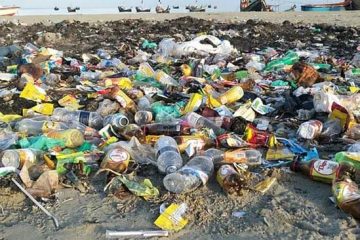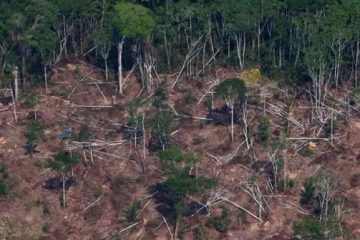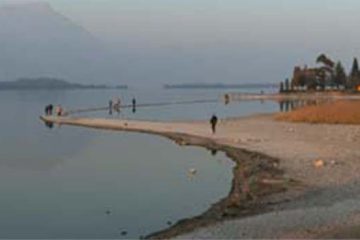 Parthenium, a newly discovered invasive and dangerous weed, has been posing a serious health problems to human beings and livestock and also causing loss of crops and vegetation in the country, reports The New Nation
Parthenium, a newly discovered invasive and dangerous weed, has been posing a serious health problems to human beings and livestock and also causing loss of crops and vegetation in the country, reports The New Nation
The dangerous weed is affecting many countries in Asia, Africa and the Pacific Islands causing serious environmental problems.
It is regarded as one of the worst weeds in Australia because of its invasiveness and economic and environmental impact.
Parthenium weed is toxic to cattle, and meat from livestock that eat the weed can be tainted making it harmful for human beings. It also threatens biodiversity in the infested area.
This plant of the herbaceous group has deep tap roots, with erect and much branched stem, that grows up to 2 metres in height in congenial condition. Its leaves are lobed with soft and fine hair. It produces dark-black seeds in star-like white flower. The weed grows in abundance along the roadside and waste lands.
Professor S.M. Rezaul Karim, Department of Agronomy, Bangladesh Agricultural University (BAU), Mymensingh and also General Secretary of Weed Science Society of Bangladesh (WSSB) told the New Nation that the districts of Jessore, Faridpur, Magura, Narail, Rajshahi, Natore, Sirajganj, Dhaka, Manikganj and Mymensingh have already been infested with the harmful weed, Parthenium.
The weed has presumably been introduced from India since most of the infestations are noticed in the bordering areas, Prof Karim said adding that a comprehensive survey could reveal a wider prevalence of the dangerous plant.
Professor Steve Adkins, University of Queensland, Australia during his recent visit to Bangladesh explained to WSSB community that the Parthenium weed is a noxious weed causing different agricultural and health problems in countries like Australia, Bangladesh, India, Pakistan, Sri Lanka, Nepal, Ethiopia and Uganda.
Severe allergic effects like eczema and skin rashes, dermatitis, hay fever, etc. from parthenium contacts, and asthma, bronchitis and other respiratory problems from intake of parthenium pollen may occur to human and livestock.
Ulceration in cattle’s mouth, toxicity in stomach and even death of livestock may occur from consumption of the weed. Yield loss of about 40 per cent to upland crops including maize, sorghum, wheat, barley and rice may also occur from infestation of parthenium weed, Professor Steve Adkins said while presenting a paper on the harmful effect of the weed at a number of discussions before the agriculturists community in the city and BAU last week.
The infestation in Bangladesh, he said, is now at primary stage and proper care should be taken to control the weed before it spreads beyond control.
Referring to the management aspect, Professor Rezaul Karim said community awareness should be created against the fast spreading of parthenium and its harmful impact.
He suggested some precautionary measures like washing with waters the body of domestic animals and the vehicles passing through parthenium infested areas.
Cares should be taken during purchasing seed, hay and other fodders so that no weed or weed seeds are embodied in it. Biological control may be possible using leaf eating beetle, seed-feeding weevil and disease- causing fungi.
Growing of competitive legume such as butterfly pea (Clitoria ternatea) or grasses such as Bisset bluegrass (Bothrichloa insculpta), Buffel grass (Cenchrus ciliaris) can be grown in the heavily infested area to reduce the invasion of the harmful Parthenium, said Professor Karim.




